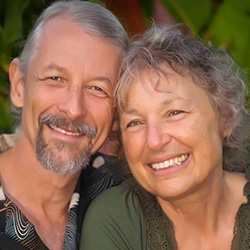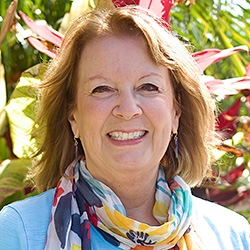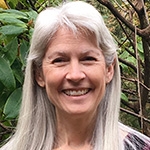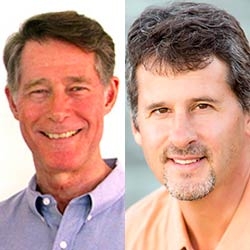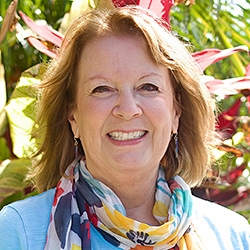
Search Results: healing
-
Listen to John answer an NVC Library member's question about what we can do when we habitually place other's needs ahead our own. Healing and change can be reached through compassionate self-connection, needs awareness, mourning and mindfulness.
-
In this brief audio, Jim Manske uses a live situation to demonstrate how to use the NVC process in an apology. Jim starts by identifying the four steps to self-connection before expressing your apology.
-
Ask the Trainer: I feel overwhelmed thinking of writing to someone with cancer. What can I do?
-
CNVC Certified Trainer Arnina Kashtan talks about what she calls "witnessing humanity," touching on the gift of presence, empathy vs. identification and staying present in the face of intensity.
-
Mary Mackenzie leads listeners through a guided meditation to experience the energy of needs. This meditation will support you to connect to your feelings and needs in the moment, and to experience the unique and deep energetic quality of that primary need.
-
Listen to this captivating story by Leo Sofer. A strong blacksmith comes to the aid of a little girl when she needs protecting. But can he protect her from the harsh words she speaks to herself inside her head?
-
Join CNVC Certified Trainer Mary Mackenzie to learn a few of her tried-and-true simple Self-Empathy techniques, especially focused on the challenges of the holiday season.
-
In this brief audio segment, John Kinyon offers a guided tour of our inner maps of conflict, including interpersonal mediation, chooser/educator, enemy images and making amends maps.
-
Listen to Jim and Jori ask each other about the role of gratitude in their daily activities as they share how gratitude can be a primary tool to help us stay present and at peace.
-
In this thought provoking talk, Kathleen Macferran explores the power of listening to open doors and potentially to transform people. This talk was given at a local TEDx event, produced independently of the TED Conferences.
-
When you have intrusive thoughts about yourself and feel ‘crummy,’ Ike recommends using the Chooser / Educator map as a guide to lead you out of the primitive part of your brain and back to your prefrontal cortex. Both the Chooser and the Educator want to contribute to your well being, but in different ways. This map facilitates having a positive conversation with them.
-
Want to expand your needs vocabulary, and build your capacity to identify needs — even when you’ve been triggered? Check out Mary’s powerful teaching on Self-Empathy.
-
Jim and Jori’s Zero Step helps you focus your attention on your intention to connect, and then affirms your intention to live in the present. Listen in as they demonstrate the process — and learn about the benefits of using and cultivating it!
-
When faced with someone’s grief for the world, how do you engage with them in a way that is informed? In this session, Kristin suggests exploring what they might be grieving… what they’re afraid of losing… and what it is that they love.
-
Ingrid shares about the three primary keys of parenting & NVC, two child rearing models, developmental needs for children and how to foster secure attachment.
-
When we're received with resonant understanding painful moments can lessen their charge and became part of the whole tapestry of life -- important but no longer able to hijack us into the eternal re-run of pain. When held this way, we can touch the memories with our attention the way one touches a newly repaired tooth with the tongue, searching for the old roughness, the old wound, but not finding it.
-
Our pattern-making minds make predictions about how best to survive in the world. So deep wounds from our past can influence our minds to make life long generalizations that harden into core beliefs about groups of people. Read on for a demonstration of how empathy can shift these wounds and thus the core beliefs.
-
What's really going on underneath the surface when we bring or encounter blame, judgements, pain -- and thereby the inability to empathize, be present, attuned, or responsive? Why does this happen even if one or more people in a relationship dynamic is working hard at bringing in an NVC response? This article addresses these and more questions from the perspective of how our brains are affected in our relationships.
-
Enjoy listening in as Arnina assists participants in fine tuning what they wish for their futures, and what practices they intend to embrace as the course winds down. She also offers strategies for what they can do if they forget their intended practice, and revisits the importance of untangling Needs from Core Belief.
-
First, on the personal side… I’ve already planted half of my vegetable garden and it was so completely enjoyable. Remember how challenging this was for me a couple of years ago? My inner jackal did have a few things to say this year, but not nearly as many as in past years. And, I gave her loads of empathy so we made it through. I am thrilled about this. I can’t wait to see my seedlings pop up! If it’s a successful garden, I’ll share pictures in a future letter.


